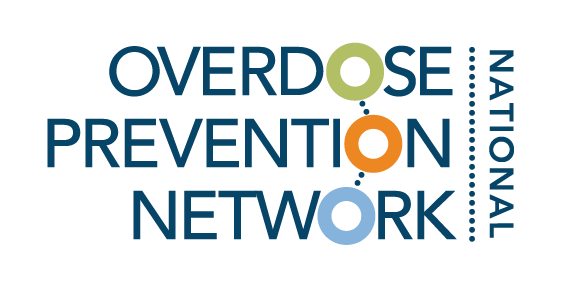
Resource Library
Toolkits, guides, and other resources vetted by experts in overdose prevention.
Filter by category and tags, or search by keyword (ex. COVID-19, harm reduction).
Top 10 California Hospital Naloxone Distributors Saving Lives
Within the past two years, 93 California hospital emergency departments have ordered 63,816 units of free, take-home naloxone using CA Bridge’s Guide to Naloxone Distribution. Learn about the top 10 hospital naloxone programs and the life-saving impact these hospitals have on their communities.
CDC Trainings and Resources to Promote the Importance of Naloxone
Naloxone is a life-saving medication that can reverse the effects of an opioid overdose when administered in time. By increasing naloxone access and awareness in our communities, we can help save lives. Check out the CDC's new resources to help promote naloxone dispensing in your community.
Preliminary Monthly Fatal Drug-Related Overdose Counts for February 2021 – January 2022
This preliminary statewide monthly count data is presented by substance and posted on the Overdose Prevention Initiative (OPI) Data webpage and is intended to provide death data to our partners more quickly.
NCIPC Funding Webpages for Overdose, Suicide, and ACEs
The CDC NCIPC Budget & Impact webpage has been refreshed and now includes State Investment Snapshots on Overdose, Suicide, and ACEs that communicate funding and programmatic data across their three priority areas at the state-level.
ASAM Weekly
The American Society of Addiction Medicine (ASAM) created ASAM Weekly which is a source of timely, useful news briefings of top stories from the field of addiction medicine.
Preliminary Monthly Fatal Drug-Related Overdose Counts for December 2020 – November 2021
This preliminary statewide monthly count data is presented by substance and posted on the Overdose Prevention Initiative (OPI) Data webpage and is intended to provide death data to our partners more quickly.
Lake County Office of Education Naloxone Policy
This is an example of a local naloxone policy implementing by a county office of education. This policy allows for the superintendent or designee or any trained district staff member to administer naloxone during an opioid overdose and includes language to ensure the superintendent or designee to train and distribute naloxone kits to district staff and replace if used or expired.
Story Map: Shasta County’s Rising Fentanyl Problem
Shasta Substance Use Coalition developed a story map to provide their community with a resource to understand the scope of fentanyl’s impact on their community utilizing local data, Arc GIS mapping, and story telling. Visit their website to learn more.
Mental Health First Aid
Mental Health First Aid is a skills-based training course that teaches participants about mental health and substance-use issues. Learn more about it here.
Tools for Overdose Prevention
Overdose death in the United States has increased at an alarming rate since the onset of the COVID-19 pandemic with an increase of 30% in 2020 compared to 2019. To help public health practitioners prevent overdose, the National Council for Mental Wellbeing and the CDC developed these resources and tools.
988: Reimagining Crisis Response
In 2020, the nation took a significant step forward with the enactment of the National Suicide Hotline Designation Act, a bill NAMI advocated for that created a nationwide three-digit number (988) to assist people experiencing a mental health or suicidal crisis. This fact sheet delves deeper into the purpose of the 988 line, and what it hopes to achieve.
988 Suicide & Crisis Lifeline
The new 988 mental health hotline is a way of providing 24/7, free and confidential support to people in suicidal crisis or emotional distress. This fact sheet from SAMHSA answers some FAQs relating to the implementation and sustainability of the 988 line.
Why Partner with Behavioral Health?
Trauma expert Brooke Briggance describes the strong relationship between behavioral health and overdose prevention, encouraging us to integrate services to combat substance use disorder.
Cypress Resilience Project
The purpose of this project is to support the inherent resilience of individuals and communities who are managing trauma, experiencing grief and navigating mental health challenges. This webpage offers resources and trainings on how to achieve this goal and implement these strategies into your own organization.
988 Suicide and Crisis Lifeline
The resources and information on this page are designed to help states, territories, tribes, mental health and substance use disorder professionals, and others looking for information on understanding the background, history, funding opportunities, and implementation resources for strengthening suicide prevention and mental health crisis services.
CDC’s New Fatal Overdose Data Visualization Dashboard from the State Unintentional Drug Overdose Reporting System (SUDORS)
The CDC’s Division of Overdose Prevention developed an interactive data visualization tool, the SUDORS dashboard, which displays fatal overdose data from 2020. Participating jurisdictions provide data abstracted from multiple data sources including death certificates, medical examiner/coroner reports, and postmortem toxicology.
Mental Health First Aide: Why Get Certified?
Trauma expert Brooke Briggance promotes mental health first aide training, a valuable method of supporting overdose prevention strategies through de-escalation and behavioral health.
988 Partner Toolkit
SAMHSA recognizes the need for governments, states, territories, tribes, crisis centers, and partners to speak with one voice to ensure there is a clear understanding about what 988 is and how it will work. These communication outreach materials allow your community coalitions to meet the needs of your specific audiences.
Let’s Talk Tri-County Region: Monterey, San Benito, and Santa Cruz Counties
Let’s Talk began as a collaborative effort between Marin County Office of Education, Marin Health and Human Services and Marin Healthy Youth Partnerships, and has been adapted for the Tri-County Region by the Central Coast Tri-County Coalition. Let’s Talk is a parent toolkit for navigating teen substance use and this booklet has been adapted to include specific data and information for the Central Coast Tri-County Region.
Lowell Community Opioid Outreach Program (CO-OP)
The Lowell CO-OP is committed to reducing the number of deaths attributed to opioid overdose and is helping its clients towards the path to recovery by bridging the gaps in treatment services.



















